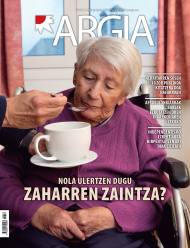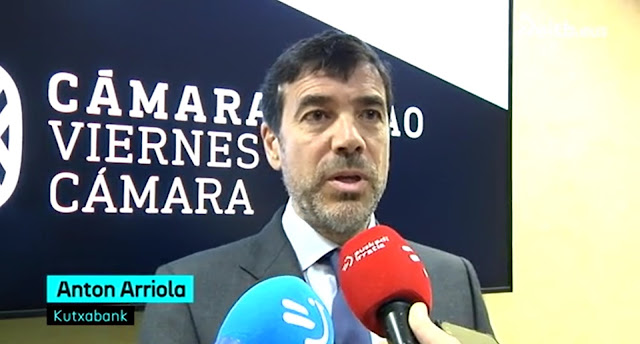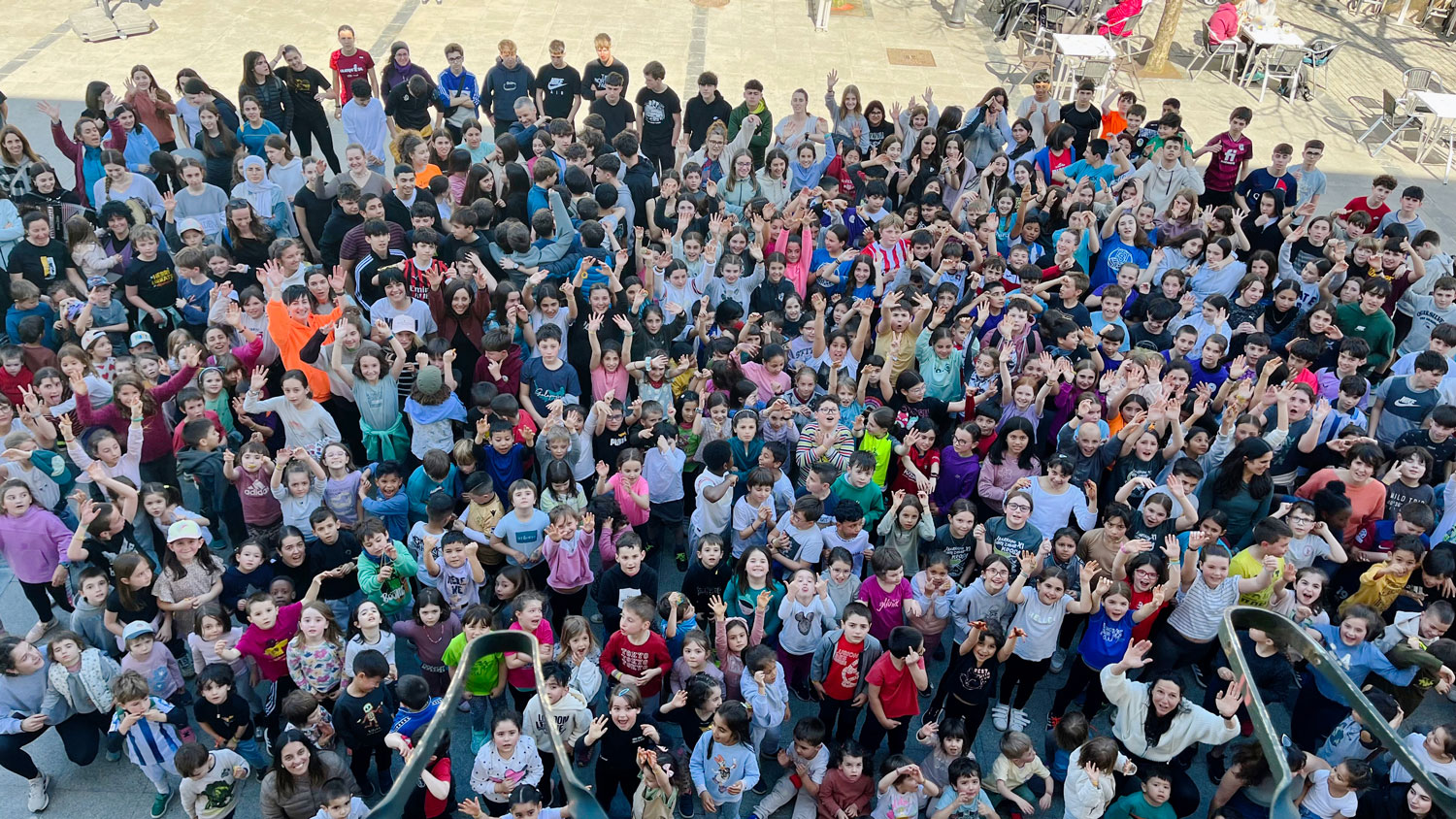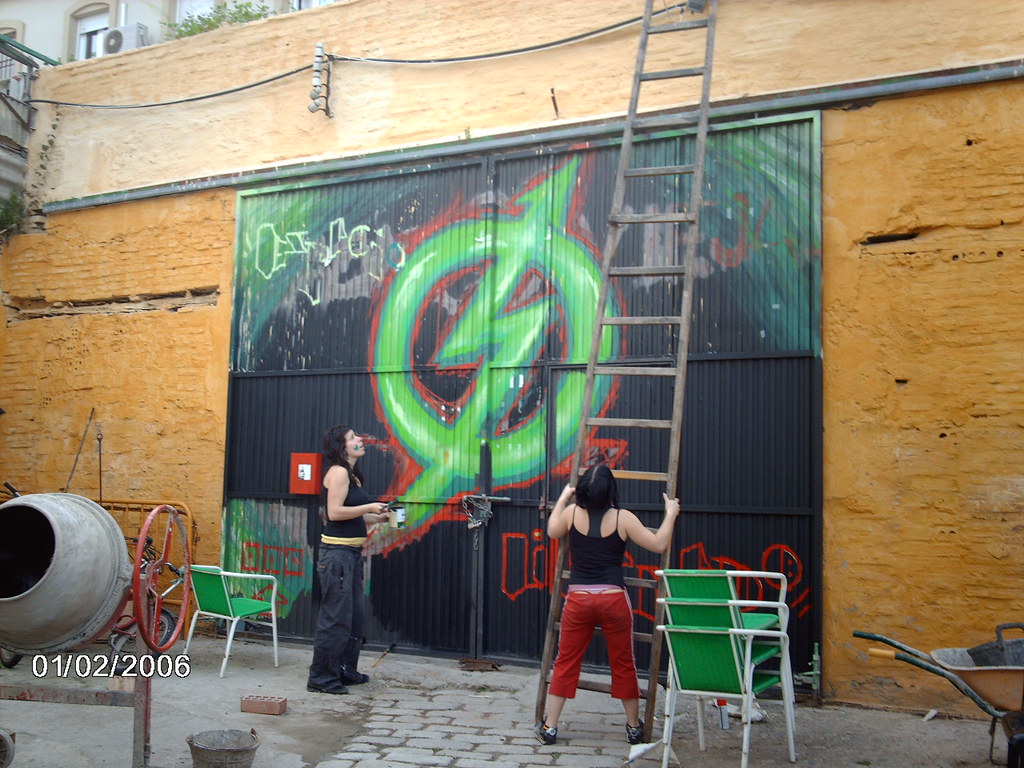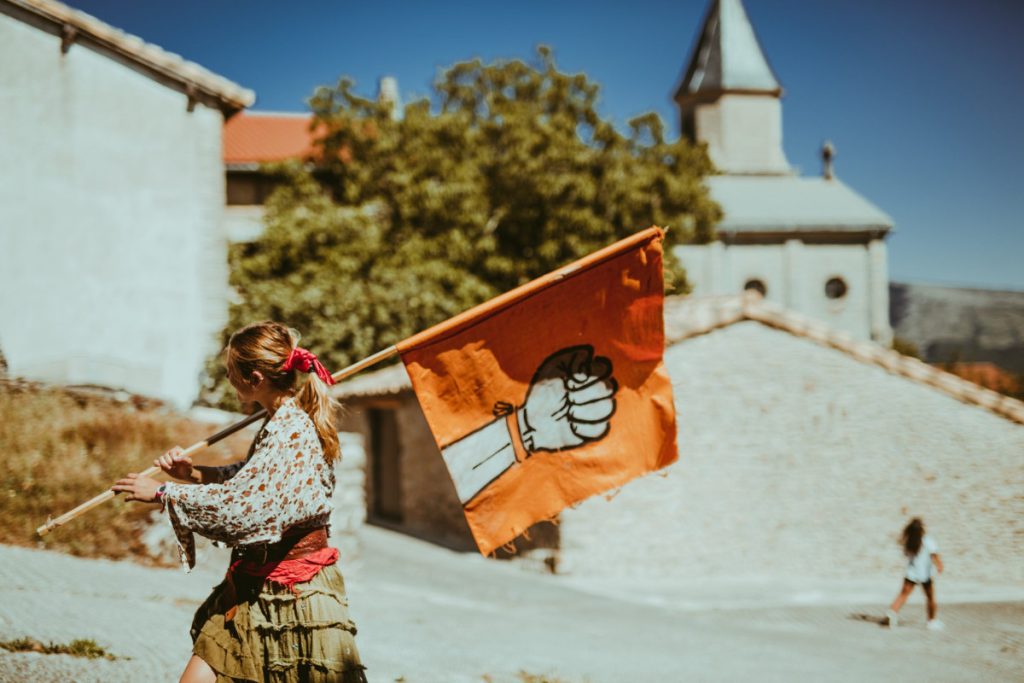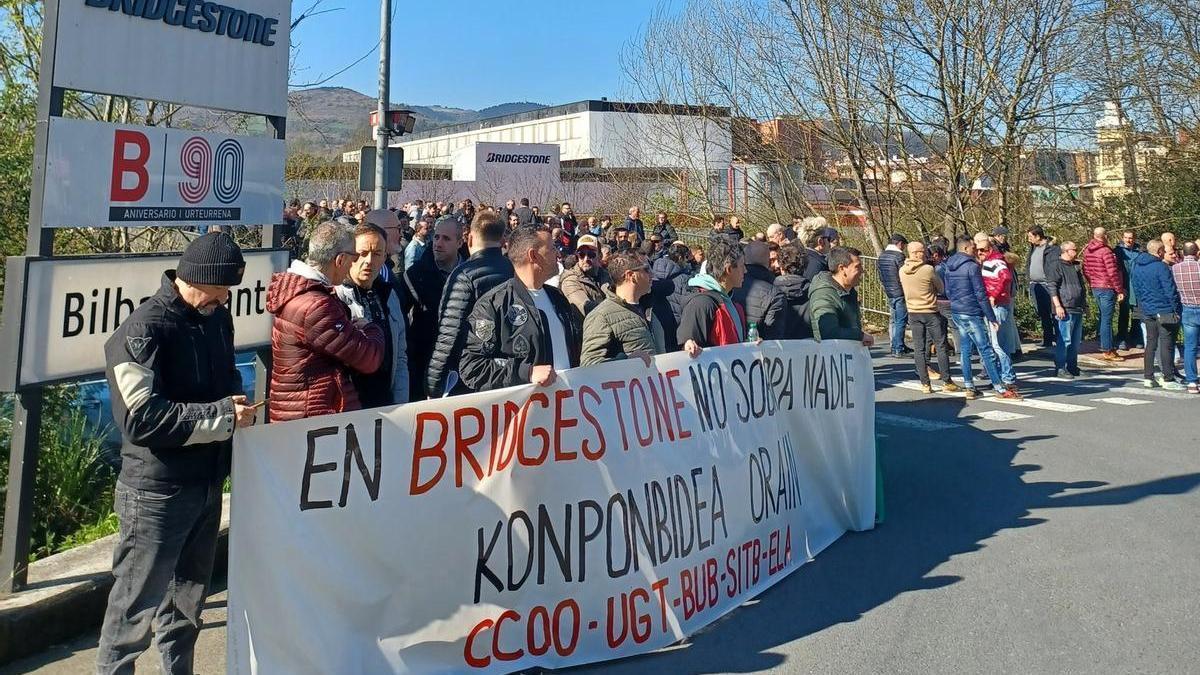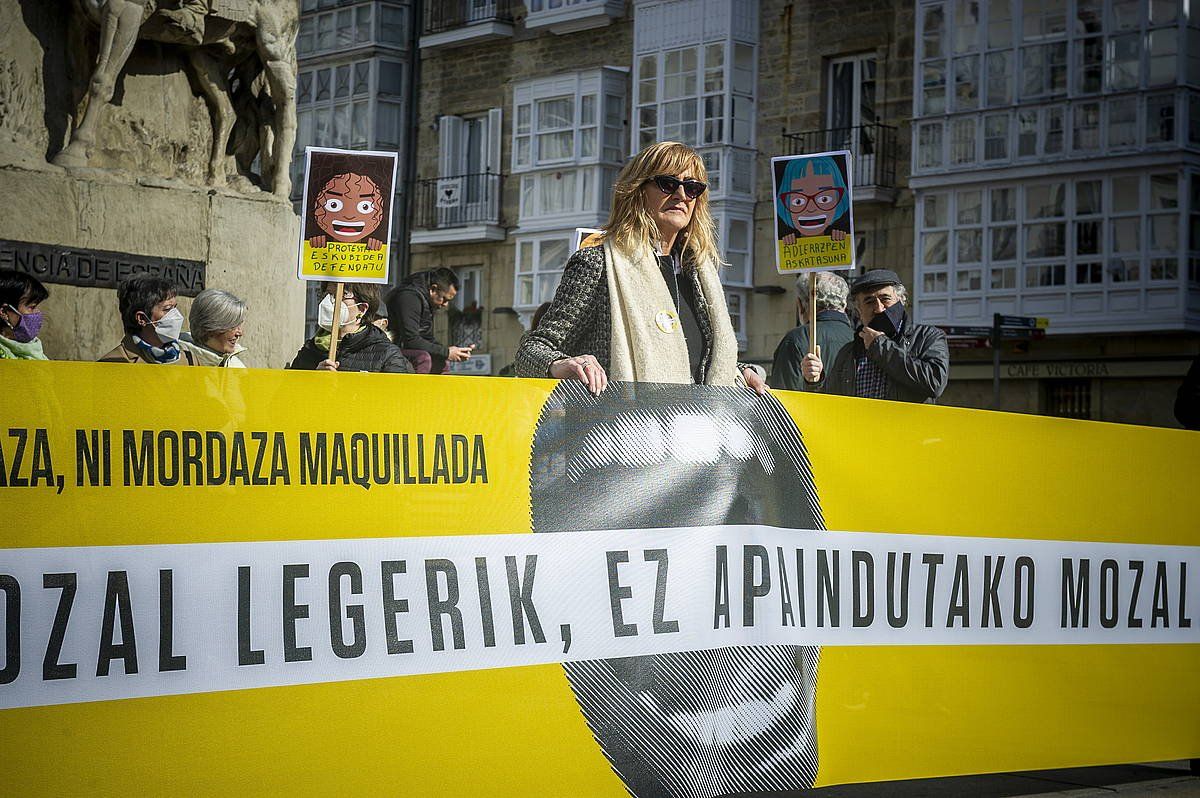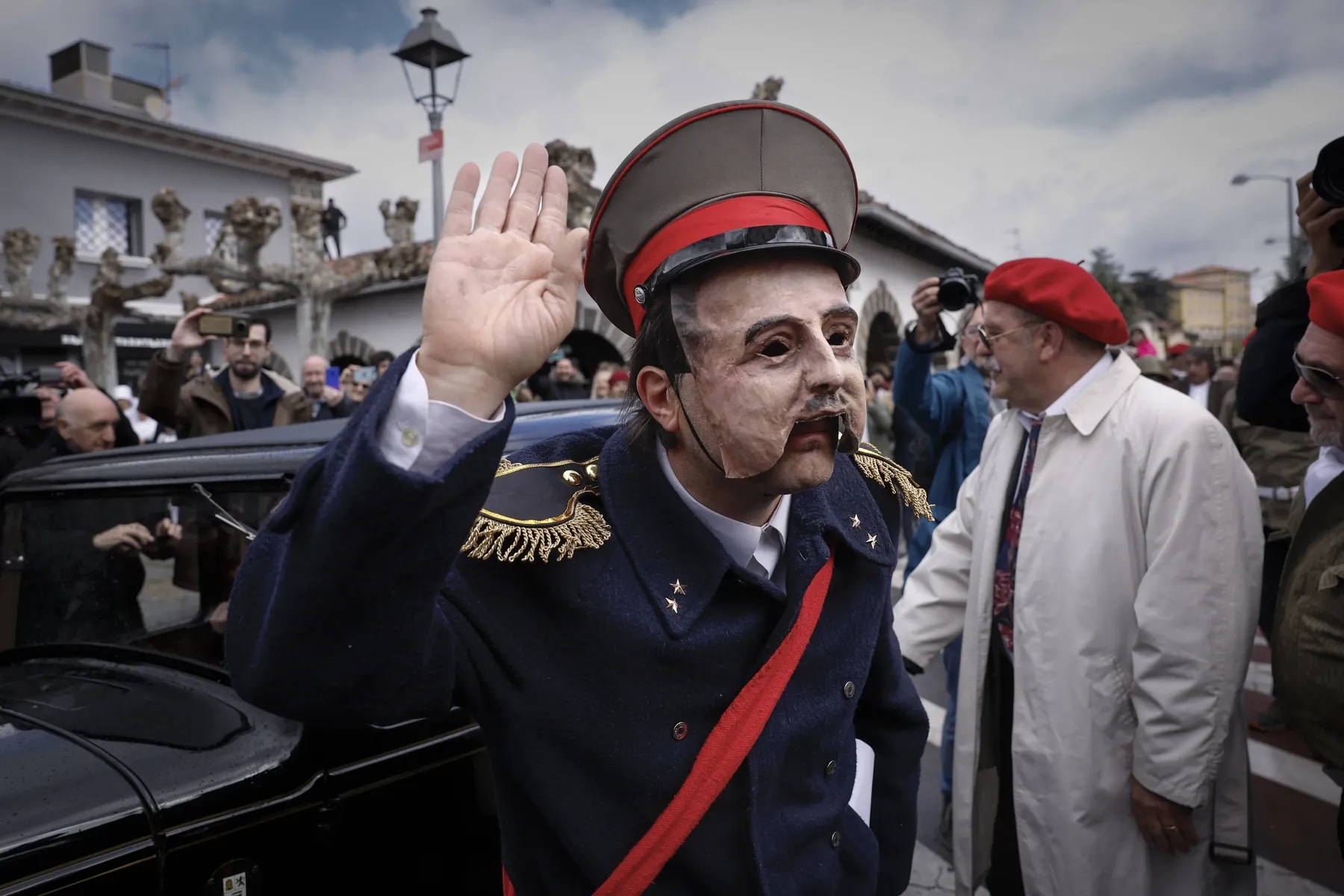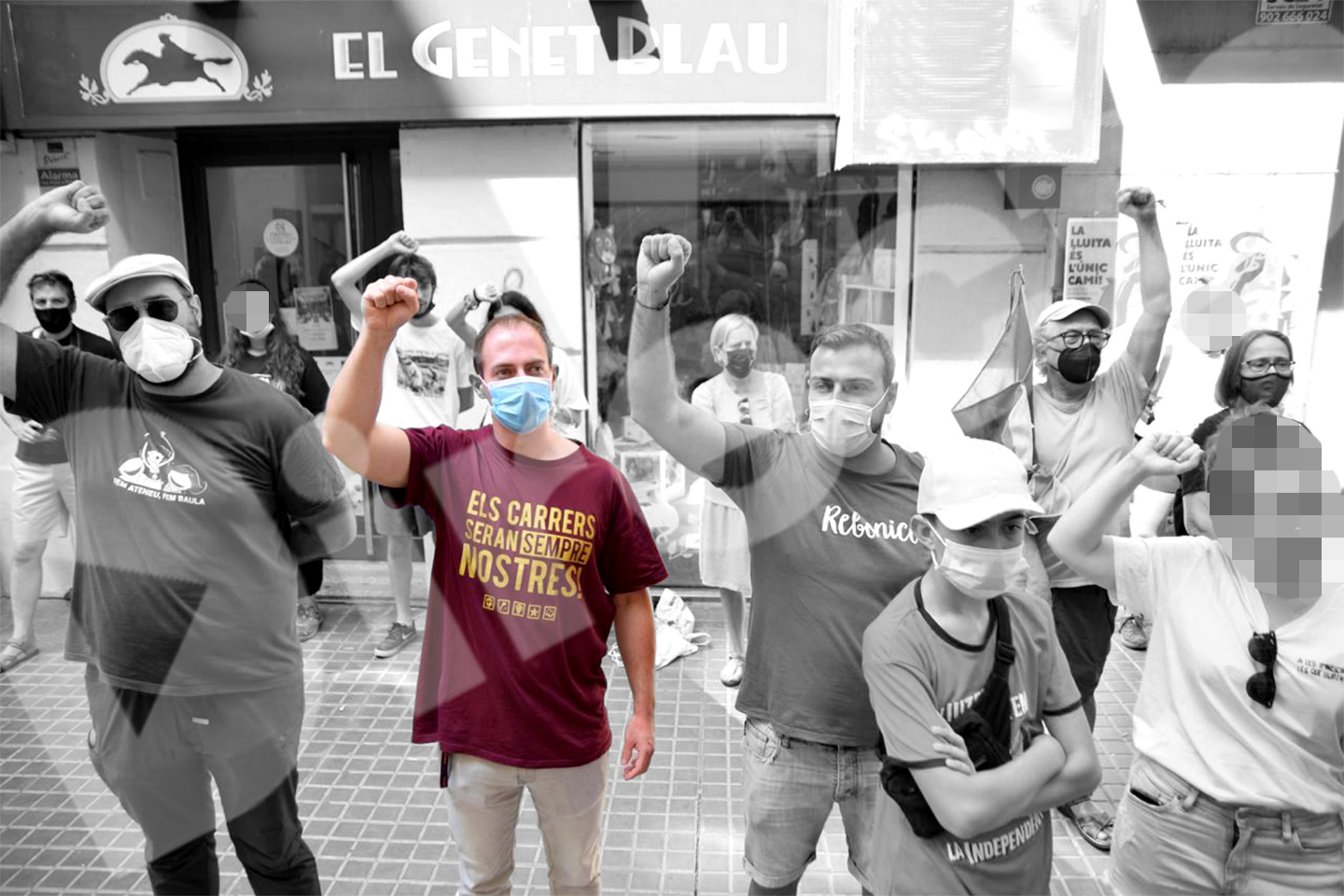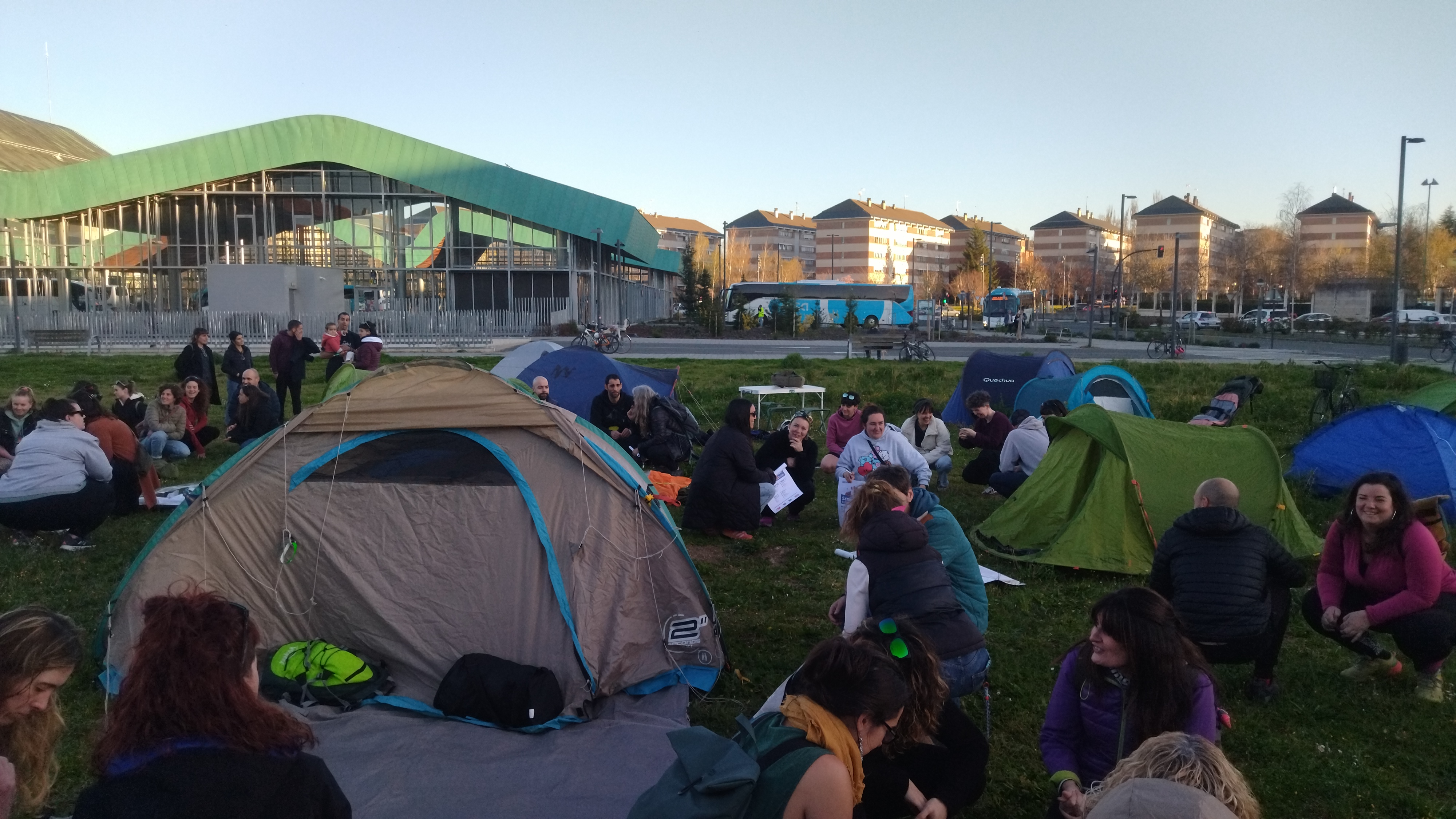Do we rethink care?
- How do we respond to the physical and psychogenic addictions related to aging and to the care needs that they generate? How do they come across when it comes to caring for and caring for class, race and gender? Can we respond to ageing from Community practices?

Addictions and care needs do not start or end at a particular time of life. All people receive care of one kind or another from birth, and while we live (almost) all of us give it to those around us. What changes are the types of needs and dependencies we have at each moment, their intensity and the care we can provide. As you age, vulnerabilities and addictions increase. They diminish their physical and psychogenic abilities. We need more help, we can offer less help.
Photo of a problem According to the
data offered by the Gaindegia Observatory, the ageing rate of the Basque population is high. 21.4% of the population is over 65 years of age, above the EU average (19.4%). The growth trend is long lasting and is expected to continue for a long time. Taking into account the forecasts made by Eustat for CAV, at the beginning of 2018 the number of people over 65 in the CAV was 480,653, 22.1% of the total population. Thus, by 2031 it is expected to be 616,010, which is 28.2%. More older people and longer living. The life expectancy of the Basque population is 83.5 years and in the last thirty years it has increased by 10 years. We live longer in good health, but also in a poor state.
We cannot fail to mention dementias. Between 8 and 10% of people over 65 have some kind of dementia. From the age of 80, the proportion is 25%. Compared to previous data, more than 65,000 people would be sick with different dementias. The “problem of ageing” is increasingly being discussed in policy, business or university areas. There is talk of a health, economic and social emergency.
Depending on the ability to pay the toll, more livable or precarious care solutions are sought in the market or in the family. The Community framework remains a minority
Is it a problem or are we doing it?
“Care for the elderly suffers a double social and cultural devaluation,” says writer Silvia Federici. Productive salaried work, in a social model that is one of the main axes of personality, is disregarding care and associates aging with loss, economic burden or inconvenience. This is what constructs the discourse of the “problem of aging”.
The writer Simone de Beauvoir has long proposed another scenario: “When you understand what it is to be old, it is not enough to settle for a more generous ‘old age policy’, with the increase in pension, with healthy accommodation, with organized leisure... The whole system is at stake and the claim has to be radical: to change life.”
But as long as we don't change our lives, it's a problem. The feminist economy says that societies use four main means to meet care needs: State or public space, biological family, market and community networks. In what proportion are elderly care provided in each area? What flows are occurring between them? The main responsibility for care has historically been imposed on women in the family and domestic context. However, the family model has changed greatly in one generation and in many dimensions. The number of children has decreased. Coexistence models have been transformed. The distance between the places of residence of family members has increased considerably. The naturalized care that children and, above all, their daughters owed to their parents in old age is in question. Both parents and children question it, as well as feminisms, denouncing the reactionary ethics of care. And yet, the biological family remains the main handle in care.
In a few decades, public space has been the second choice. However, neoliberal policies are decreasing public services and the abandoned territory conquers markets. Depending on the ability to pay the toll, more livable or precarious solutions will be sought in the market or in the family. The Community framework remains a minority, as before.
Class, race, gender According
to our position of power in the social hierarchy, we have more or less resources and possibilities to receive and provide adequate care. The position of power is determined by different variables, it cannot be approached all in these lines, but we would like to highlight three: class, race and gender.
.jpg)
Ana Delfa Piedraita Villa and Rakel Perea Valencia work professionally in the care of the elderly. Delfa arrived in Europe in 2004, as a political exile. Since 2012 he has been living in Álava, working with the elderly, almost always in private homes. Since 2000, Perea has been working with elderly people with dementias and other psychogenic addictions. He serves as director at the Bizia day centre, which serves 35 patients. It is a public private management centre of the Provincial Council.
Delfa lives “with great sadness” the situation of the elderly in our country. “In Colombia, the elderly person is always accompanied. It is a source of knowledge, we have great respect and there is their need at home, as is that of the parents”. On weekends she works with a woman in full dependency, and during the week she works at a couple's house. “The woman suffers from profound depression; they are between 88 and 83 years old and physically are in decline.” It has a weekly day of 60-65 hours, always in fractional hours. “In 2012 there were no whites there in their chores, it was not a job for them. “Wash the asses? No, no’. But now, for lack of employment, there are some, people with few resources, that’s right.” All of you who've cared for are white.
It is a handicapped, precarious, racialized and feminized sector. “When I started, the time was around EUR 10, now less. No social security, no pay, no holiday. But it requires a lot: knowing how to cook, to wash, to have experience and training in the care of the elderly. 8 hours a day for EUR 700”. There are worse conditions. He has a friend in a domestic worker's house. “They don’t give him two hours a day to rest. Leave on Saturdays at 10 p.m. and return on Sunday at 10 p.m. That’s 700 euros, with two elderly people in charge.”
Ana Delfa is part of the global care chains. At the time when it takes years to care for older people, and the need for care comes, many of them return to their homeland. “I have been away from home for 14 years now, I am 47 years old now. I have no savings, I have no house, I have nothing. If I get sick, who would take care of me? I will have to go back to Colombia. And what am I going with? Who will keep me?” Like all, not only in the future, it also has the need to be cared for. But “we don’t think about that for ourselves. There should be self-care, but that also takes time, and we don’t have it.”
At Bizia Day Centre, run by Rakel Perea, all workers are women, but there are no migrants. Not even among users. Despite widespread precariousness, working conditions are more worthwhile. The dependence of psychogenic diseases and the extreme demand for care stand out: “You need 24-hour short-term care and diagnosis. The progression of the disease is constant, so it is very difficult to ensure the necessary care at home. Families do so in their homes, in extreme conditions.” It is emotionally very hard, both for the patient and for the environment, and the process lasts for years.
Day centers and public residences are crowded and the waiting list is long. Although it depends on income and property, per day centre they pay an average of 503 euros per month, and for residences of 1,116-1,400 euros. Most of them go to private residences. Whenever they can. “The Member grants a maximum amount of EUR 1,000, but more than EUR 2,500-3,000 per month is paid in private residences.”
You see the evolution of society from your job. Family models “are increasingly smaller, therefore less caregivers and older”. The network is smaller and precarious. As a result, the old man who was in the day centre for many years is now redirected to the residence. “A unique daughter, like the one who cares for a father who lives alone at home. If the unit goes up and the center only receives 8 hours, how do you do it for the rest of the hours?”
The ways of understanding care also change. “The generation of daughters aged 60 to 70 is taking care of their elders. It is a message they have received from parents, how will you take me to the residence? You will take care of me until I die at home,’ and that emotionally, especially for the daughters, is an incredible burden.” But Perea perceives change. This generation “wants to remove the burden that we now have between 40 and 45 years old: ‘My mother has told me that if I get sick, it will take me to the residence.’ Care has a dark, crooked face. Lack of recognition or imposition of care in the name of love. It's not very optimistic about the future. “What has grown is the market. It was the family that was in charge of monitoring for a long time, the public was developing later, but for years it has been blocked. I didn’t know the private centers of the day, and now there are some in Vitoria.”
There are
always people and groups who develop ideas and practices outside the strict channels and borders. Kontxesi San Juan Elizalde is 60 years old and lives in Pamplona. He is a member of the Etxekide cooperative, which wants to build collaborative homes for the elderly. There are 35 people aged between 53 and 71 (25 women and 10 men), all of them from Malaga or nearby towns. “We want a medium team. If we were many, we would give a residence, we would know each other less. If the group is too small, we would have too much dependency.”
In 2016, two friends began to shape the idea, and the following year four people joined them. “Before opening the doors to more people, we agreed on the basis of our project: to be ecological, to be in the city, to have a social character, to have a link with the citizens’ movements of the neighborhood...”. Fragility is the main weakness of these projects. “There are many, but only ten percent.”
St. John insists on maintaining independence as we age. But not “lonely.” To be part of Etxaide, “you have to be predisposed to others being important in your life. We want to create a web of spiders that will help us and help us easily.”
Community self-management, public services, institutional participation. It defends the need and complementarity of all. “If one of us, for example, is affected by Alzheimer’s, public services should be there, but beyond it will also be protected.”
.jpg)
Marianne Brull is an 83-year-old woman who, beyond her biological family, has developed an extraordinary life that has responded to addiction to old age. Swiss born, lived 30 years in Paris. Last 30 years in the Poble Sec district of Barcelona. “I live alone, happy. As for care, I don’t have a husband or children.” She has biological relatives in Switzerland, but she has family in the neighborhood. “I met a group of people, who are my family, whom we call ‘family’. We're 8-10, I met them about ten years ago, when they were 20-23 years old. So they were students, now they're working."
“I met them because I am how I am.” She saw a position in the street with some magazines, approached, asked what they were doing... and on the same day she visited the place that the young people used as a cultural center and as a home.
You may be for some time without seeing anyone in the family, sometimes you see them every day. Brull has suffered two falls in recent years. “I didn’t say much, but they knew it. Who is going to see Marianne today? Do you need food?...’, someone who came home every day. I’m autonomous, I strive for it, but when I need it they are there, and it’s wonderful.” Asked about what he gives, “I think I get a lot and I give little, even if they say no. It is true that I am a reference for them because of my way of thinking and my experiences, they ask me for opinion, and my house is also a meeting point for the family, they thank it”.
He considers that the model is also interesting for others. But he sees difficulties. On the one hand, the tendency towards closure in a biological family makes it difficult to create another type of network. On the other hand, it is critical of older people: they often feel afraid of young people, mistrusting, precisely when the opposite is the case, it is best to approach.
“The old is not what it has been, but what it has been for a long time,” said the song by Jon Sarasua, musicated by Oskorri. Marianne Brull tells us something similar. “I reclaim the old word. We're old. Not old rags, but old rags.” The biological family has increased in barrels, markets and commodification, public services in retirement... We can continue to delve into the unfair care of the face of women, expropriated and racialized, or into the construction of worthy and friendly alternatives. There are handles for the starting point.
.jpg)
From linguistics or glotophobia and, of course, hatred against Basque, we have often seen our Basque become the dandruff of all sticks. Last of all, the president of Kutxabank, Anton Arriola, has been shaking our language and giving us galantas.The President of Kutxabank,
... [+]
Do not look for this connection from Ezkio or Altsasu, let alone crossing the Ebro River through Castejón. The connection, or rather the connections, between the Basque Y and the AVE of Navarre is already a reality. It is these links in the plural that should concern us and... [+]
Don't make a fuss, don't confront, don't victimize... and obey. As oppressed subjects, in this case as Basques, we talk, how many times have we had to listen to them? Ironically, two years ago, at the Euskalale Independentiston Meeting, Esne Arzallus said: "We have arrived here,... [+]









